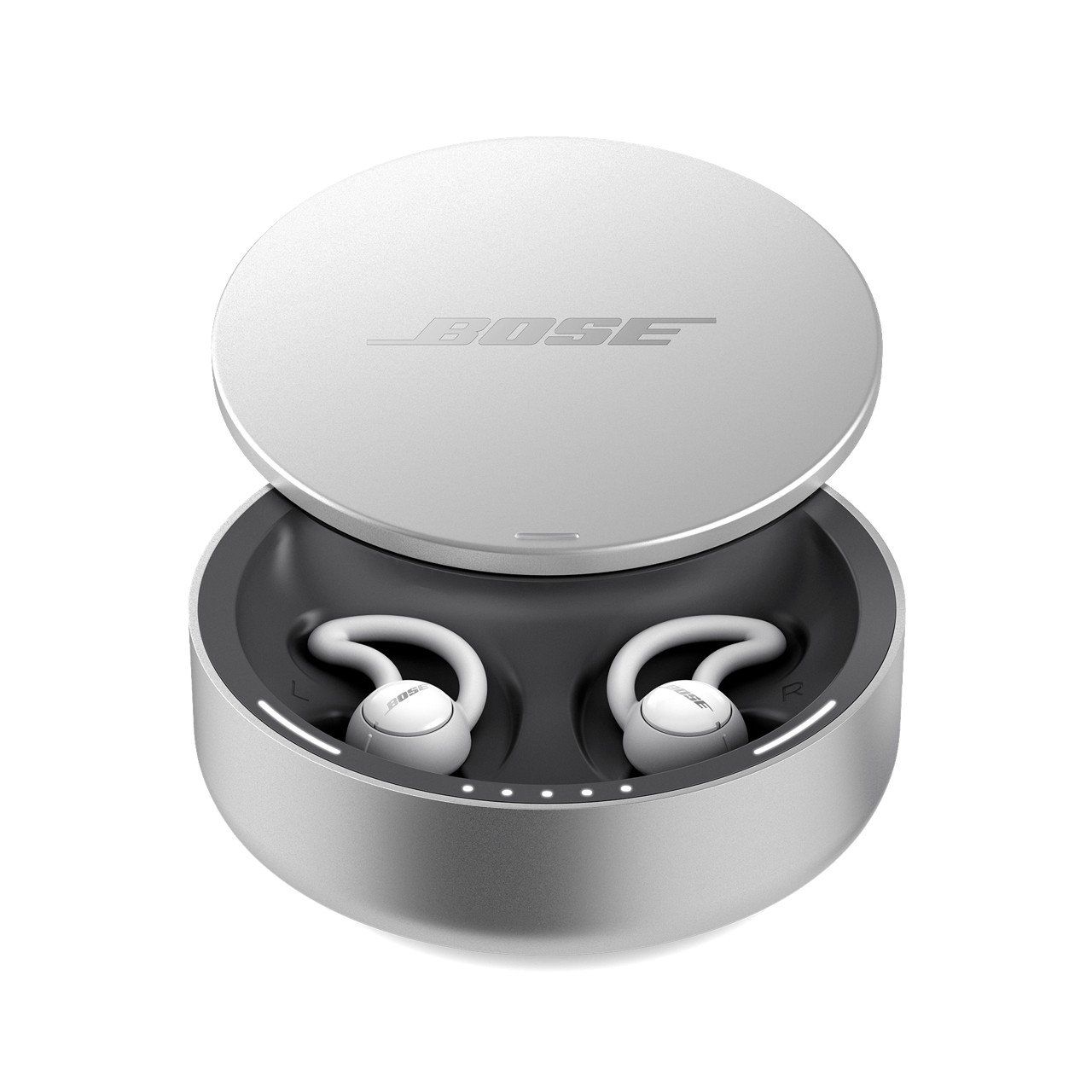Globally, 60 percent of people have sleep problems, whether it’s falling asleep, staying asleep, or waking up. Bose has designed a set of earbuds that are specifically designed to help people combat these issues. Dubbed “Sleepbuds,” the wireless device drowns out snoring, traffic, and other distractions by using soothing sounds instead of music to send people to dreamland.
“We combined our knowledge of sound, our expertise in noise management, our ability to make small electronics and our know-how in designing comfortable earbuds to help you take back the sleep you deserve,” the company states on its website.
The sleepbuds feature 10 pre-loaded sounds such as rustling leaves, crashing waves, or a crackling fire. The tracks mask noise and help the wearer relax. The company plans on offering additional soothing sounds in the future.
“I really believe that, with this solution to this really massive problem … we’re going to change millions of people’s lives,” commented Brian Mulcahey, Bose Category Director, Wellness.
Bose offers Sleepbuds in three sizes (small, medium and large), which can be worn comfortably for all sleeping positions, including side sleepers and those who change positions frequently. Bose used three-dimensional ear scans to develop the Sleepbuds to ensure they fit correctly on the upper edge of people’s ears.
They come with a charging case that delivers one full charge when unplugged. The charge lasts Sleepbuds are used in conjunction with the Bose Sleep app to customize sleep settings. After downloading the app, users simply pick a sound, set the volume, and set a time for how long they want to use Sleepbuds. Users can change the settings at any time.
Sleepbuds are available in the United States and Canada for US$250.00. If you can’t afford to spend that much, the National Sleep Foundation has some tips for getting a good night’s sleep:
- Create a sleep-friendly environment
- Practice relaxation techniques
- Develop a sleep schedule
- Do not drink, eat too much, or use nicotine near bedtime
- Use the bedroom for sleep and sex only
- Write in a sleep diary to identify sleep patterns to share with a doctor
Other tips: avoid sleeping in on weekends, limit naps to 15-20 minutes, expose yourself to bright sunlight in the morning, avoid bright screens before bedtime, and keep the room dark.


